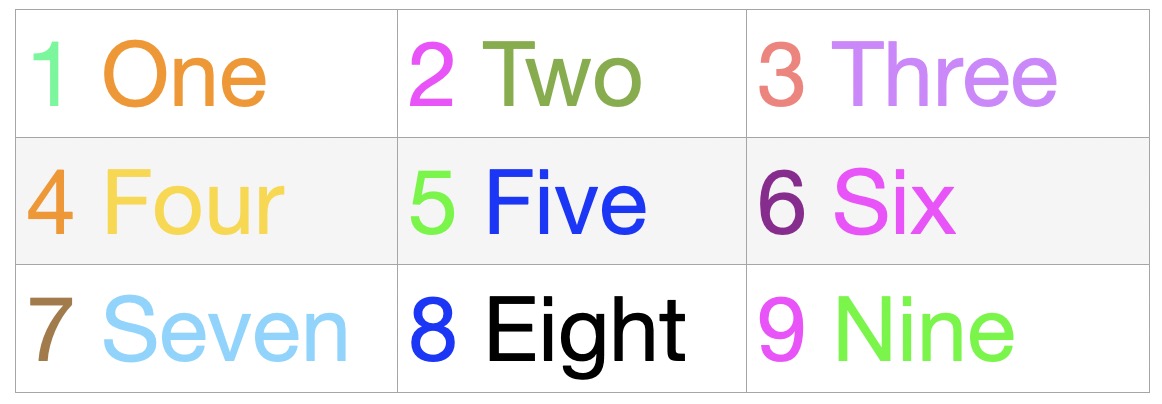| Issue November-26 | ||
 |  |
|
| ·Home ·Politics ·News ·Sport ·Life ·Culture ·World ·Essays ·About | ·Archive | |
| ||||||||||||||
| numberwords |
 |
How often have you thought when you are writing a letter, a report or an essay whether you should spell out numbers rather than just writing down the numerals? Are there any rules or conventions? According to the website "Grammarly" there are suggestions as to you should write and of course as ever there will be exceptions and grey areas. If you google "when to spell out numbers" you will receive a load of suggestions and one I came across in particular sort of sums up the problem. The authors wrote: "It depends which style guide you are using". So in fact the rules might change depending on who you are writing for, I wonder what the "Aunty Beeb" says. More on "Aunty" later In the US there would seem to be styles for APA - the American Psychological Association, then there is so-called "Chicago" style - who are they?, Modern Language Association (or MLA). More important would seem to be AP which is Associated Press whose material gets copied millions of times every day. I did believe that the basic rule, which I had often heard of spelling out numbers from zero (maybe nil) to ten was fairly universal but it would seem that is not the case. Actually it is but many stretch it out from zero to one hundred. Even Microsoft has suggestions, but they are all based on those I have just listed. So nothing new. But it would seem there exceptions or you might like to call them additions. Grammarly states: round numbers such as hundreds, thousands, or hundred thousands should be written out in full. Numbers that are not conveniently round will read better written as numerals. So they would write "five thousand" rather than 5,000. In universal agreement seems to be the rule always to spell out numbers at the beginning of a sentence. This of course avoids any confusion with numbered lists. Back to the BBC. You probably guessed it. The BBC not only have rules for their journalist to follow when it comes to numbers but about almost any other subject of style one could imagine. There is not just a list of five or six rules but an entire page where one can select by letter of the alphabet various subjects. Many we looked at really do make sense because they avoid confusion. One has to remember that the Beeb is international, read all over the world and at any time of the day and night. So it should come as no surprise that they do not want articles to contain references such as today, yesterday or tomorrow because these ay be relative to where the reader, listener or viewer are located. Also interesting that they insist on using the twenty-four hour clock, which avoids using am or pm references which are unknown to many readers even in Europe and also dates must be written in an unmistaken fashion, so no 9/11 it is the 11th of September. Actually when referencing a specific date they remove the "nd" or "th" as well and so it should be written 11 September 2001. -pw- |
| ||||||||||||||||